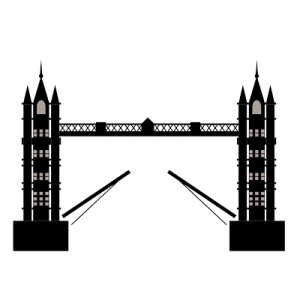hi Everyone
I have 3 question and would appreciate an answer from forum members.
1. What is the main difference between corporate and commercial law?
2. Who are transactional lawyers? What is the nature of their jobs?
3. The term attorney used in USA, are they solicitors or are they Barristers ((in UK solicitors generally prepare cases and then pass on cases to Barristers who argue the case in courts, also as I understand only Barristers(and not solicitors) have the right to argue in higher Courts of UK)).
CORPORATE VS COMMERCIAL LAW
Posted Jul 25, 2007 22:51
I have 3 question and would appreciate an answer from forum members.
1. What is the main difference between corporate and commercial law?
2. Who are transactional lawyers? What is the nature of their jobs?
3. The term attorney used in USA, are they solicitors or are they Barristers ((in UK solicitors generally prepare cases and then pass on cases to Barristers who argue the case in courts, also as I understand only Barristers(and not solicitors) have the right to argue in higher Courts of UK)).
Posted Jul 26, 2007 01:18
I am not from USA and my native language is not english, so it is possibly that I could be wrong, but I will try it:
1. Commercial refers to the commerce. Corporate refers to corporations, companies. So, in spite of the fact that companies and commerce are related, they are not the same (i.e. a commercial problem could be ralated with the purchase of thing, a corporate problem could be related with a meeting of shareholders).
2. I don´t know. It seems to be related with transactions :p
3. attorney = solicitors and/or barristers (in USA, as in many coutries, there is not that distinction).
regards
1. Commercial refers to the commerce. Corporate refers to corporations, companies. So, in spite of the fact that companies and commerce are related, they are not the same (i.e. a commercial problem could be ralated with the purchase of thing, a corporate problem could be related with a meeting of shareholders).
2. I don´t know. It seems to be related with transactions :p
3. attorney = solicitors and/or barristers (in USA, as in many coutries, there is not that distinction).
regards
Posted Jul 29, 2007 17:05
1. Commercial law is basically the application of, mainly, contract law and property law principles to commercial issues, such as taking security and insolvency situations.
Corporate law (or company law) is mainly concerned with the operation of companies - i.e. directors' duties, agency issues, etc.
2. Transaction lawyers actually carry out transactions, i.e. negotiate and draft the relevant documents, and are commonly distinguished from advisory lawyers who advise on specific issues: tax, employment, etc.
3. A US attorney carries out the roles of both a solicitor and barrister.
Corporate law (or company law) is mainly concerned with the operation of companies - i.e. directors' duties, agency issues, etc.
2. Transaction lawyers actually carry out transactions, i.e. negotiate and draft the relevant documents, and are commonly distinguished from advisory lawyers who advise on specific issues: tax, employment, etc.
3. A US attorney carries out the roles of both a solicitor and barrister.
Other Related Content
LL.M.s in Business / Commercial Law: Helping Lawyers Manage Complexity
Article Sep 21, 2018
Lawyers are doing increasingly complex work, spurring demand for courses covering contracts, transactions, tax and more
Hot Discussions
-
Cambridge LL.M. Applicants 2024-2025
Oct 30, 2024 142,349 544 -
Georgetown LLM 2024/2025 applicants
Nov 16 09:22 PM 40,120 209 -
Indian Tribes as US Jurisdictions of law attorney admission?
Nov 08, 2024 765 6 -
Warwick or Birmingham
Nov 10, 2024 1,163 5 -
NUS LLM cohort 2025/26
Nov 17 05:40 PM 472 5 -
EU citizen barred in the US -- will an LLM from an EU school help me practice law somewhere in the EU?
Nov 15, 2024 138 4 -
NUS vs Peking
Nov 09, 2024 183 4 -
LLM in Germany 2024
Nov 09, 2024 823 4




